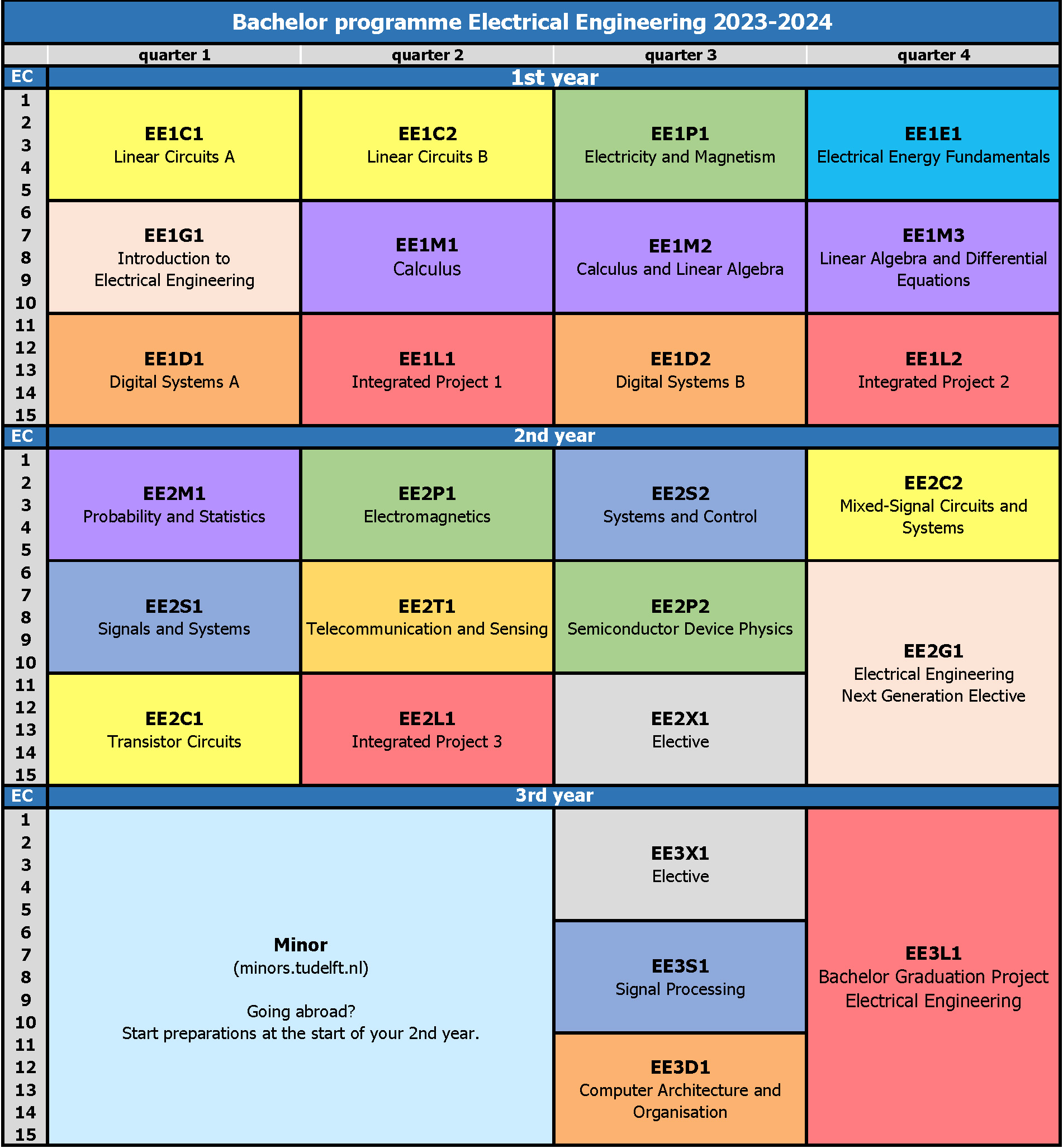What will I learn?
With mathematics and physics at its core, the Electrical Engineering degree programme will help you gain a broad knowledge of various specialisations, such as microelectronics, telecommunications and energy technology. You will also develop collaboration and presentation skills, while working on application-oriented projects. Exactly this combination of skills will prepare you for a career in the dynamic world of Electrical Engineering.
The Electrical Engineering degree programme consists of seven learning lines:
- Mathematics
- Physics
- Circuits
- Signals and Systems
- Digital Systems
- Telecommunications
- Electrical Energy
Mathematics is the tool you will use throughout your career and as such Mathematics is the core of the degree programme. The Physics courses include content on quantum mechanics and electricity and magnetism. You will need this fundamental knowledge to comprehend the operation of electrical and electronic components and systems.
Each semester offers a number of mandatory courses and a project. In the second and third year you can also choose courses on specific content that interests you. And after the first semester of the third year, which is dedicated to a minor from any faculty, and a few some more courses and you will complete the Bachelor’s degree programme with a graduation project.
In the first quarter you will have a course called Introduction to Electrical Engineering that will help you get an idea of what Electrical Engineering really is. In this course you will also make a start with learning some of the skills that you will need throughout your studies, from soldering to Python programming and from working together to reflecting on your role as an engineer in our society.
And in other courses you will be learning the basics of electrical engineering. You will have lectures on electrical and electronic circuits and computer systems. You will be applying mathematics and physics. There are regular tests to measure your progression and understanding of the material. You will also work on specific project assignments that integrate your newly gained knowledge. An example of an integrated project is designing and putting together an audio system.
The second year introduces you to Energy Engineering, Signals and Systems, Microelectronics and Telecommunications. Your knowledge in mathematics and physics is further deepened with probability theory and semiconductor device physics. You will also work on a project on an application of signal processing.
In quarter three there is an elective course, here you have the opportunity to choose from different topics such as electrical energy or computer networks.
Finally, in the last quarter there is a major elective where theory and project are combined and applied to electrotechnical subjects of the future such as energy, healthcare or communication.
You will continue your studies in the third year with a minor at TU Delft, at another university, abroad or with an internship. In the third quarter, you will resume with and elective course and courses in Signal Processing, Computer Architecture and Organisation. Finally, during the Bachelor’s graduation project, you will work in a team on an electrical engineering design and prototype, such as designing a system to optimise the energy of the Nuna solar car battery.
In the first semester of year 3 of the Bachelor’s degree programme, you will have the opportunity to spend six months broadening your horizons and exploring a subject that interests you, in the way that suits you best. Electrical Engineering students, for example, choose minors such as Electrical Sustainable Energy Systems or Offshore Wind Energy. Alternatively, you can broaden your perspective by opting for a cohesive course package, an internship or a course abroad. A well-chosen minor can help you to find the career options that suit you, or decide which Master’s programme you want to do after your Bachelor’s degree programme.
More information about Minors
